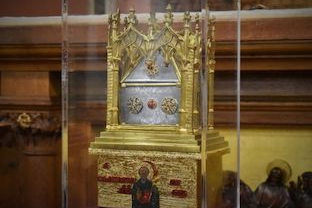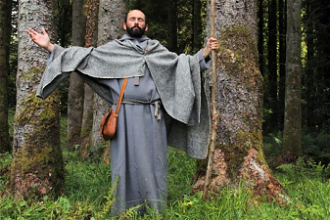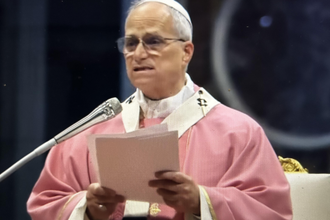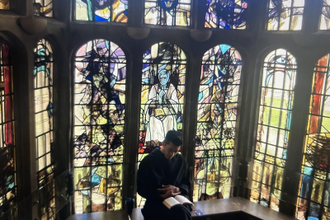Reflections on Saint Columba
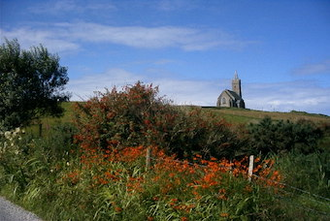
Gleann Cholm Cille - Church of Ireland church, by Nigel Callaghan. Wiki Image
Referring to St Columba - today's 'Saint of the Day', ( see: www.indcatholicnews.com/saint/170 ) reader Sean Mac NIalluis writes:
My 'home' parish in County Donegal is Gleann Cholm Cille - named in honour of Columba whose name in Irish is Colm Cille (the Dove of the Church). Some people will have walked the pilgrimage way last night at midnight while more will do it today or during the month.
As well as preparing Columba for his great work 'abroad; Gleann CC had already sent monks to Iceland (according to academics from there).
One of the holy wells in the parish is called "Tobar na mban naoimh" which translates as "the well of the women saints". Their names were Ciall (Sense), Tuigse (Understanding) and Náire. (Shame - but the older meaning of the word was Modesty). The origins of the well are likely to have been pre-Christian. There are also a few place-names which refer to other local women saints.
The pilgrimage was traditionally done in silence but there is one little hill where pilgrims can talk. It is called "Mullach ná Cáinte" ("the hill of talking").
Midnight last night, the eve, would have been the time for the first pilgrimage. The old standing stones which are used for prayer stops are pre-Christian which were blessed and incised with crosses probably in the 9th century. Older immigrants returning to visit family might do the pilgrimage at any time of the year.
Interestingly, the pilgrimage starts outside the Church of Ireland which is believed to be the site of the first Christian church in 'the Glen', and can be seen from all parts of the valley.
I understand that authorities in Donegal and their counterparts in Scotland are seeking to establish a 'Slí Cholmcille' or 'Colmcille's Way/Pilgrimage from Glen via Derry to Scotland.
People in Donegal feel a great connection with Scotland. This is partly to do with work, seasonal or full-time, in bygone years. But also because of a shared language and culture.
Seán



